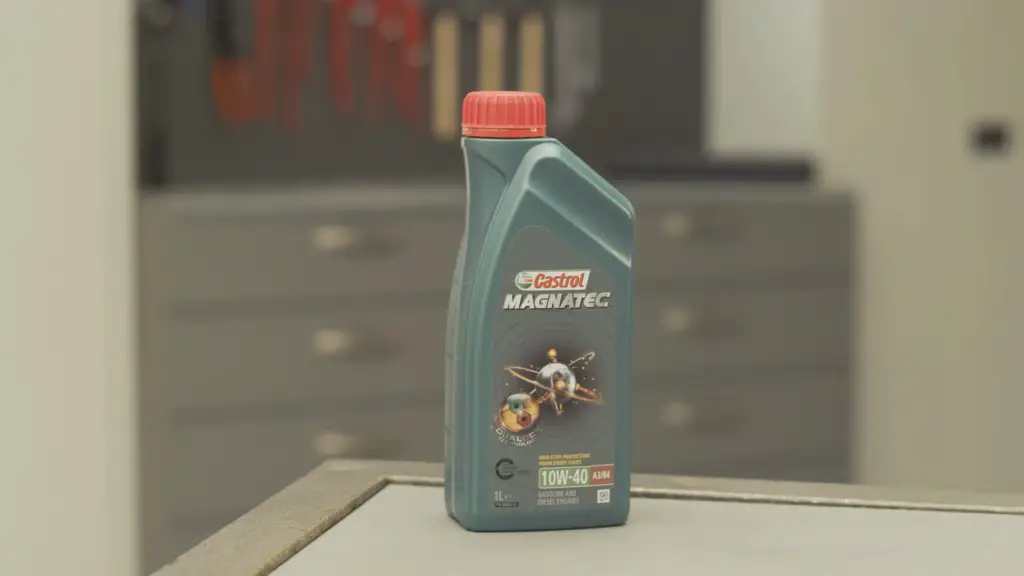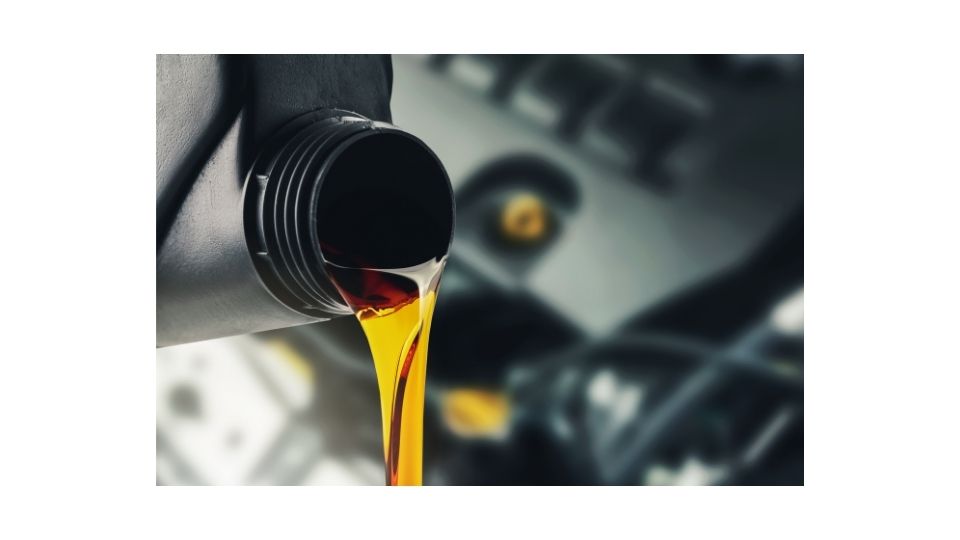Did you know? Oil isn’t just used for lubrication. It also helps cool the engine, clean internal parts, and protect against corrosion.
Vehicle engines are not designed to work on oil of one type and one type only. Manufacturers mix and match different oils for different engine types, temperature ranges, gasoline octanes, etc. There is no one-size-fits-all formula that will work in all situations for all vehicles.
In this article, I’m comparing one of the two most popular oil types, the 10w40 and 20w50, so that you’ll walk away from this with a clearer idea on:
- What each type of oil is for
- Which type of oil to use
- Which is better
- Symptoms of incorrect usage
- and more
Read on!

10w40 vs 20w50 oil
10w40 stands for 10 weight, 40th viscosity grade.
20w50 stands for 20 weight, 50th viscosity grade.
The terms “weight” and “viscosity grade” are most of the time used interchangeably and taken to mean the same thing. The actual scientific definition of these is that the term “weight” refers to the SAE (Society of Automotive Engineers) Viscosity Grading scale which is marked in numbers that range from 0 to 60 where 0 marks the thinnest oil (lowest viscosity) and 60 marks the thickest oil (highest viscosity).
A 10w40 oil has 40 units between the two-scale numbers, and a 20w50 has 50 units between the two-scale numbers.
As for the viscosity grade, this is a measure of how much thinner or thicker the oil is than “zero”. If you see that oil is of a 20 viscosity grade (i.e. 20w50) it means that at 100 degrees C it will be half as thick as what it will be at 0 degrees C.
This is very important because engine oil behaves differently in cold temperatures than it does at high temperatures. The oil will thicken up at low temperatures and therefore it cannot lubricate as well.
Automotive engines are designed to run on oils that are in between two extremes, thinner oils, and thicker oils. The 20th viscosity grade (i.e. 20w50) is specifically designed for high-temperature situations, while the 40th viscosity grade (i.e. 10w40) is specifically designed for cold-temperature situations.
Which is better: 10W40 or 20W50?
In short, the answer is that it depends on the situation.
Engines that are designed for lower temperatures and/or cold starts (like those in your winter vehicle) will perform best when using 10w40/ I highly recommend Valvoline High Mileage with MaxLife Technology SAE (Check current price on Amazon).
While engines designed for higher temperatures and/or used in warm weather (like those in your summer vehicle) will perform better with 20w50, I recommend Valvoline Advanced Full Synthetic 20W-50 (Check current price on Amazon).
Just remember to stick to the viscosity grade that is prescribed by the vehicle manufacturer do not make a wild guess about what viscosity grade you should use.
Keep in mind that most cars today are built to run on 10w40 oil exclusively throughout their entire lives. If you have a newer car, it is recommended that you stick to 10w40.
For engines that are designed for higher temperatures and/or used in warm weather (like in your summer vehicle) doing an oil change with 20w50 at the end of summer will help prevent the formation of sludge in the engine.
Note that if you do a proper oil change on any car in summer with 10W40 or 20W50 there should not be problems with sludging as long as you change the oil regularly.
This also applies to winter vehicles as long as you change the motor oil at regular intervals, it is not necessary to use a thicker and more expensive 10w40 oil.
Can I use 10W40 instead of 20W50?
From what has been discussed above, it is clear that the oil you should use depends on the vehicle, what season it is, how fast you drive the vehicle, and other factors. Using 10W40 in a car that requires 20W50 can cause damage to the engine if done for an extended period of time. The same applies to using 20W50 in a car that requires 10w40.
Some mechanics will recommend using 10w40 or 20w50 as part of their recommended yearly/monthly service schedules regardless of what type of vehicle you drive. If your mechanic recommends this, follow their recommendations as they have more experience than most people when it comes to vehicles and engine problems.
What is 20W50 oil used for?
20W50 is used when the manufacturer specifies it.
It is also used for vehicles that are designed for higher temperatures and/or used in warm weather (like a summer car) during the winter season.
There are also some recommendations from the manufacturers to use 20W50 in cars that are designed for low temperatures and/or cold starts.
Driving your car at high speeds for extended periods of time may also wear down the engine faster than normal, thus making it cheaper to maintain the vehicle by using 20W50 than 10W40 which prevents frequent changing of the oil. However, this depends on what your car requires and how you drive it. If you drive slowly and have short trips to work, 10W40 will do just as well.
What is 10w40 oil used for?
10w40 is usually recommended for newer vehicles and/or driven in warmer weather. It should be noted that if your vehicle was manufactured after 2012 there may not be a requirement to use 10w40 unless you drive your vehicle fast or in cold temperatures.
Is 20W50 good for high mileage?
20W50 is not necessarily better than 10W40 for high mileage. If you are asking about needing a thicker oil for high mileage, the answer is no.
If you have a car that has already accumulated 200,000 miles and are thinking of changing the oil to 20W50, it will not improve your gas mileage or the performance of the engine in any way but it will do a good job of keeping your engine running smoothly and be less prone to sludge.
The issue with high mileage vehicles is actually due to driving style and maintenance.
Is 10w40 good for high mileage?
10W40 is not better than 20W50 for high mileage. The difference between 10w40 and 20w50 is simply that the latter is thicker.
As far as gas mileage goes, no oil will improve your gas mileage by changing from 10W40 to 20W50 or vice versa. The way to improve your gas mileage is to drive more efficiently and purchase a vehicle that gets better gas mileage.
Manufacturer’s Recommendations
Note that following the vehicle manufacturer’s recommendations for oil type and viscosity helps in ensuring optimal engine performance and longevity. The manufacturer’s recommendations are based on extensive research and testing to determine the best oil type and viscosity for the specific engine design and operating conditions.
The manufacturer’s recommendations take into account factors such as engine design, operating temperature range, and fuel economy requirements. They may also consider environmental factors such as emissions regulations and sustainability goals.
To determine the recommended oil type and viscosity, manufacturers conduct extensive testing on their engines under various operating conditions. This includes testing the engine’s performance with different oil types and viscosities to determine the optimal combination for maximum efficiency and longevity.
Those are the very reason why following their recommendation is for the best.
Signs of Incorrect Oil Use

Using the wrong type of oil for your vehicle can lead to a number of problems, including:
Decreased fuel efficiency
Decreased fuel efficiency is because the wrong type of oil may not be able to lubricate the engine properly, which can cause friction and heat buildup.
Increased engine noise
If you hear knocking or ticking sounds coming from your engine, this is because the wrong type of oil may not be able to protect the engine’s components, which can cause them to wear down and make noise.
Oil leakage
Oil can leak from your engine because the wrong type of oil may not be compatible with the engine’s seals and gaskets, which can cause them to break down and leak oil.
Poor engine performance
This can include issues like reduced power or acceleration, because the wrong type of oil may not be able to lubricate the engine properly, which can cause friction and heat buildup.
Increased emissions
The wrong type of oil may not be able to burn cleanly, which can release more harmful pollutants into the air.
Oil pressure warning light
The wrong type of oil may not be able to provide adequate lubrication to the engine, which can cause the oil pressure to drop.
Dirty or discolored oil
The wrong type of oil may not be able to protect the engine’s components from wear and tear, which can cause the oil to become dirty and discolored.
Low oil pressure
The wrong type of oil may not be able to provide adequate lubrication to the engine, which can cause the oil pressure to drop.
Questions From Carowners
Can you mix 10w40 and 20w50?
While it’s often advised against mixing different kinds of oil due to potential impacts on the oil’s viscosity and performance, note that exceptions do exist.
For instance, certain motor oils, like AMSOIL extra protection 10w-40 and 20w-50, are specifically engineered to be compatible with other oils. These specially formulated oils can safely be mixed without adversely affecting the overall performance or viscosity of the oil in your engine.
However! Because every vehicle and engine is unique, refer to your owner’s manual or consult with a professional mechanic for tailored advice on oil types and the practice of mixing them. Their guidance will be based on their expertise, taking into account the specific needs and requirements of your vehicle, ensuring optimal performance and longevity of your engine.
What happens if I made a mistake and used 20w50 instead of 10w40?
The answer depends on various factors, including the engine type and driving conditions. However, using a different type of oil than recommended can alter the oil’s viscosity and performance, potentially leading to engine damage or reduced efficiency.
Know that the numbers in the oil type represent its viscosity, or thickness, at different temperatures. Therefore, using 20w50 oil instead of 10w40 means the oil is thicker, especially when hot, which can affect how it lubricates the engine parts. This deviation can impact the engine’s overall performance, potentially leading to more significant issues down the line.
Consequently, if you find yourself in such a situation, the best course of action would be to drain the incorrect oil and replace it with the correct type as soon as possible. This proactive measure can help prevent potential damage to your engine, ensuring its longevity and optimal performance.

Robert Anderson is a world class motorhead who rebuilt his first carb at age 10, his first engine at age 15, and completed his first full hotrod build when he was just 18! Previously, he has ran a part warehouse, delivered pizzas, and managed the service department for a $20 million/year revenue dealership. Robert knows cars like few others and he is passionate about sharing his knowledge.


Well explained. Thanks a lot!